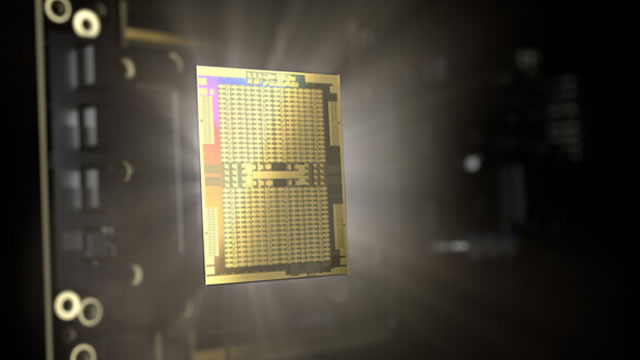Advanced Micro Devices, Inc. (AMD): A Profitable Underperformer in AI Hardware
Advanced Micro Devices, Inc. (AMD) has been a profitable underperformer in the AI hardware market, despite strong growth in revenue, net income, and promising market positioning under the leadership of Dr. Lisa Su. While Nvidia has dominated the AI training hardware market due to its CUDA platform, AMD’s cost-efficient, open-source ROCm platform is gaining traction, particularly with firms like Meta.
The Role of ROCm in AI Hardware
AMD’s ROCm platform is an open-source, parallel computing platform and programming model designed for general purpose GPUs. It is an alternative to Nvidia’s CUDA platform, which has long been the industry standard for AI hardware. While CUDA has been the go-to choice for AI training due to its extensive ecosystem and support, ROCm offers a compelling alternative for AI inference.
AI inference refers to the process of making predictions or decisions based on data that has already been processed. This is a crucial step in many AI applications, such as image recognition, speech recognition, and natural language processing. ROCm’s cost-efficiency makes it an attractive choice for firms looking to implement AI inference at scale, without the high price tag associated with CUDA.
Meta’s Adoption of AMD’s ROCm
Meta, the social media giant, is one of the firms that has adopted AMD’s ROCm platform for AI inference. Meta has been investing heavily in AI and machine learning to improve its products and services, such as its AI-powered chatbots and virtual assistants. By using AMD’s ROCm platform, Meta can reduce costs and improve efficiency in its AI infrastructure.
AMD’s Chiplet Approach: Superior Cost Efficiency
Another factor contributing to AMD’s competitiveness in the AI hardware market is its chiplet approach. Chiplets are small, modular chips that can be connected to form larger, more complex chips. This approach allows AMD to manufacture chips more cost-effectively and with greater flexibility than its competitors.
By using chiplets, AMD can optimize each chiplet for specific tasks, such as AI inference or graphics processing. This leads to superior cost efficiency and performance compared to monolithic chips, which are manufactured as a single, large chip. Nvidia, for example, uses a monolithic chip design, which can make its products more expensive to manufacture and less cost-effective for firms looking to implement AI infrastructure at scale.
Impact on Individuals and the World
The adoption of AMD’s ROCm platform and chiplet approach by firms like Meta is a significant development in the AI hardware market. For individuals, this means that we can expect to see more AI applications and services that are cost-effective and efficient. This could lead to a wider adoption of AI in various industries and applications, from healthcare to education to transportation.
For the world as a whole, this development could lead to a more equitable distribution of AI technology. By offering cost-effective alternatives to dominant players like Nvidia, AMD is making it easier for firms and organizations of all sizes to adopt AI technology. This could lead to a more level playing field in the AI market and a more inclusive AI ecosystem.
Conclusion
Advanced Micro Devices, Inc. (AMD) has been a profitable underperformer in the AI hardware market, despite strong growth in revenue, net income, and promising market positioning. Its cost-efficient, open-source ROCm platform is gaining traction, particularly for AI inference, with firms like Meta adopting the technology. AMD’s chiplet approach offers superior cost efficiency compared to Nvidia, making it a compelling choice for AI hardware investments. This development is significant for individuals and the world as a whole, as it could lead to a wider adoption of AI technology and a more inclusive AI ecosystem.
- AMD’s ROCm platform is gaining traction in the AI hardware market, particularly for AI inference
- Firms like Meta are adopting AMD’s ROCm platform for cost-efficiency and performance
- AMD’s chiplet approach offers superior cost efficiency compared to monolithic chip designs
- This development could lead to a wider adoption of AI technology and a more inclusive AI ecosystem





